Man of the People: Jos Dijsselhof Leads Euronext into its Next Act
Waters profiles the CEO of Euronext, Jos Dijsselhof
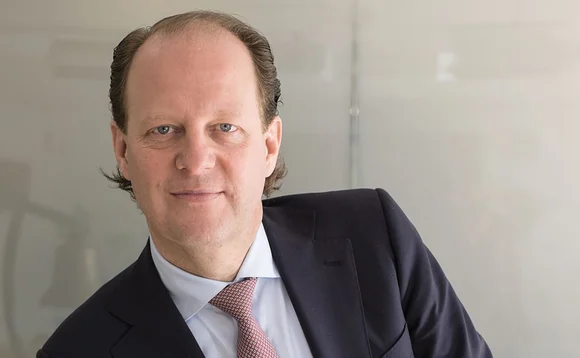
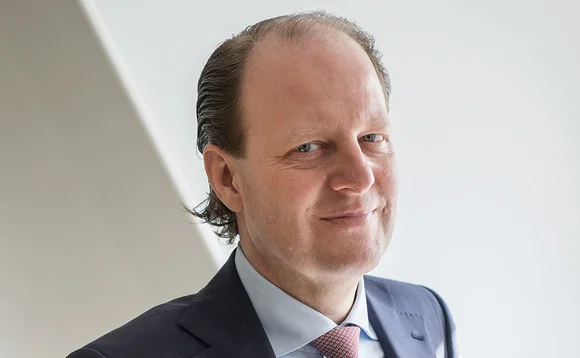
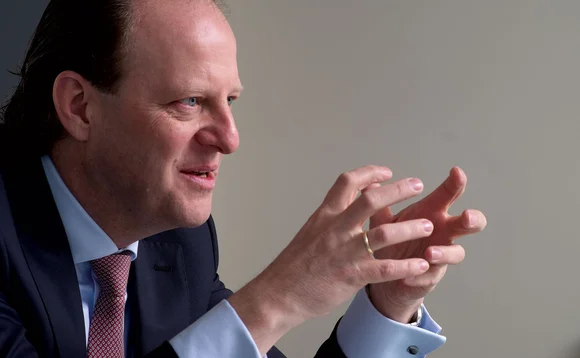
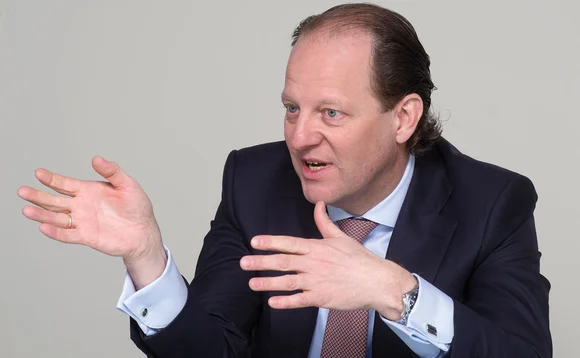
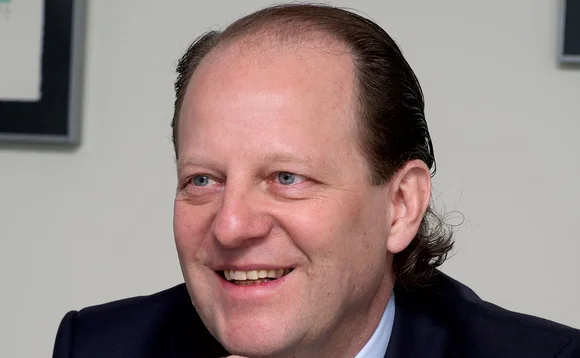

Jos Dijsselhof is the kind of person that a global team needs. He is determined, driven and experienced, but he is also curious about the people he manages and respectful of everyone's cultural differences and aspirations.
Dominique Cerutti, the former CEO of Euronext, described him as one of the people representing the future of Euronext in an email to his staff, where he explained his early departure. Cerutti resigned in April after announcing a restructuring plan that would see the exchange, then located on the rue Cambon, leave the center of Paris to join the quartier d'affaires in La Défense, while simultaneously unveiling significant downsizing initiatives.
He was expected to remain in his position until July 15, before becoming chairman and CEO of technology consultancy, Altran, to ensure a smooth transition. Instead, the Euronext board promoted Dijsselhof to replace him as interim CEO only a fortnight later, arguing that it would be in the best interests of all parties to act swiftly and to appoint a replacement as early as possible.
Cerutti spent six years at the helm of Euronext. During his tenure, he was responsible for driving the trading venue through its uncoupling from ICE and its subsequent IPO, and for making it a true pan-European operator, in line with its European values, reflecting Europe's diversity.
Interesting Proposition
My rule number one is never assume that you understand the culture deeply, and always be curious about it. Ask questions, try to understand and get more insight. Try to find a common thread as well as differences to ensure that you engage effectively with people. -- Jos Dijsselhof
Cerutti hired Dijsselhof from the Australian and New Zealand Banking Group (ANZ) in June 2014, a few weeks after the IPO. At the time, Dijsselhof was based in Asia and had no intention of leaving the region or the Aussie-Kiwi bank. On the contrary, he was thinking of moving from Singapore to Melbourne, to run the operation from ANZ's head office.
"My wife and I really enjoyed living in Asia. And then, without realizing it, I was engaged to discuss a job in Europe. I thought: ‘Oh Europe, I am not ready for Europe yet.' Or at least I didn't think I was. But immediately I was inspired by the energy and the passion Dominique Cerutti had for Euronext. With 400 years of heritage and all the different permutations with ICE and NYSE, it has a fascinating history. And then the new management wanted to build a pure pan-European exchange, with five countries that have similar and aligned priorities, but also have enough differences to make it interesting."
After several hours of discussing the job with Cerutti, Dijsselhof said he was finally convinced that moving back to the Netherlands was a good opportunity for his career as well as beneficial for his family.
Euronext Separation Program
On joining the exchange in June 2014, Dijsselhof was tasked with the Euronext separation program, a large and complex IT project to migrate the whole of the exchange's businesses away from the ICE infrastructure and onto Euronext's own technology stack. The project, the likes of which typically take up to two years to complete, took a little over seven months.
"For us it was vital that our technology is available every day, so availability and stability are extremely important. Even more during the migration from the ICE infrastructure into our own world, stability has been a big focus for us."
Although he joined after the separation, Dijsselhof says he could still see some legacy issues associated with ICE and NYSE. In the wake of the IPO, there were a number of initiatives that Dijsselhof wished to maintain and expand within Euronext, while simultaneously eliminating others like non-essential spending, a factor during the NYSE years that does not sit comfortably with a company that strives to be agile and careful in its spending habits.
"Euronext is the smallest company I've worked for in my career, but it still has plenty of substance, people and countries to make it challenging, while being nimble, enabling us to adapt to change when needed. We've launched more products in the past seven to eight months than we did in the previous two years while separating ourselves from ICE and NYSE. We've been able to do that because our people are energized-they wanted to feel that independence."
A graduate in computer science, Dijsselhof had his first experience of running a department when he was quite young. After completing his one-year MBA, which he thought would give him a solid business foundation, he joined the ABN Amro trainee program. He had a smooth and fast career ascension, with a steady stream of projects securing him a comfortable position at the bank.
From Asia with Love
But when he was tasked with creating ABN Amro's first-ever global trading book for foreign-exchange auctions, which entailed building both back-office and front-office systems and operating models to support the auctions model emerging in Asia, which subsequently moved to Europe and the US, he didn't anticipate the bank asking him to run the department.
"I liked the international aspect of that business, dealing with Asia, Europe and the US, so I accepted the job; it was my first experience of running an operational department."
Before he knew it, he was running the operational site for the entire sell side of the bank's European businesses. But Dijsselhof really wanted to do something a bit more "breakthrough," so when ABN Amro decided to grow its Asian business in 2005, he jumped at the opportunity and moved his family to Hong Kong to start a new chapter.
"I was very excited to be moving abroad and seeing more of the world, but also moving away from the head office," he says.
The Hostile Takeover
The Dutch bank had implemented an aggressive "5-3-5" plan, aiming to become a top five player by multiplying revenue three times in five years.
"That went well, the business grew rapidly, the new team started a lot of initiatives and introduced new technology, so it was quite an exciting job, but then things changed at ABN Amro."
In 2005-2006, the financial troubles of the Dutch bank became too big to ignore until finally it disclosed that it was in talks with Barclays in what was supposed to be a friendly takeover. Instead, the Barclays plan collapsed and the Royal Bank of Scotland stepped in and a hostile takeover ensued. In 2007, ABN Amro was finally split into three different entities by a consortium comprising Fortis, RBS and Santander.
Dijsselhof and the Asian business went to RBS in what was at the time the largest-and possibly the worst handled-banking takeover in history. But for him, that meant being forced into something that he didn't choose.
"I was set to go to Asia for a long-term career with ABN Amro and suddenly we were taken over. It was quite an interesting experience because there is a lesson in humility in terms of adapting to a new world without having too much choice."
Cultural Differences
Dijsselhof recalls the profound differences in management between the two banks. While ABN Amro was more of a network kind of organization, RBS was a centrally driven firm, where every Monday morning, you would receive a list from Edinburgh of what you needed to achieve by the end of that same week.
"It was frustrating at first as it was a different culture, but gradually I started to see the strength of the organization and I began to build relationships with people," he says.
As Dijsselhof slowly adapted to the new management dispensation, the global financial crisis blew up, resulting in RBS receiving a spectacular £46 billion bailout from the British taxpayer. Dijsselhof and the Asian operations went through another round of negotiations with respect to who was going to acquire them, the successful suitor being ANZ, a development that he was particularly pleased about.
Now reporting to Melbourne and having to recreate a whole new environment for ANZ, Dijsselhof moved from Hong Kong to Singapore to develop a proper infrastructure for the whole of Asia. ANZ did not have any infrastructure outside of its home market so Dijsselhof had to build it from the ground up, appointing COOs in each country, recruiting a head of technology and operations for the region, and migrating the business from the RBS environment to the newly created ANZ infrastructure.
"That's when I had the chance to develop my experience moving systems and businesses from one infrastructure to another," Dijsselhof explains, adding that Cerutti saw this experience as a valuable skill needed in order to drive the Euronext separation program.
A People's Person
While at ANZ, Dijsselhof also became an expert in operational management, making his way through cultural differences to defend his strategy as ANZ started moving large numbers of jobs from high- to low-cost locations and running operations from there. With about 6,000 staff members in Bangalore, India, around 2,000 in Manila, 300-400 in China and a centralized IT operations team in Fiji-his favorite location-Dijsselhof's day-to-day job started resembling the international remit he was after.
"If you talk about achievements in my career, putting that project together and making it work seamlessly across four locations, and giving everybody the feeling that there was a local identity for them in the team but also they were part of a bigger organization, that was the key. Feeling the energy of the people that we managed in those locations is one of the highlights of my career-I really enjoyed that."
Dijsselhof acknowledges the challenges associated with managing teams in multiple locations, while trying to achieve the same thing. The operating models need to be standardized, but the way that you motivate and energize people to get the best out of them is different depending on their location, he says. It is about finding the right balance between enough standardization and scale for the organization to benefit from, but still having a local touch and understanding of culture and drivers to motivate people.
"My rule number one is never assume that you understand the culture deeply, and always be curious about it. Ask questions, try to understand and get more insight. Try to find a common thread as well as differences to ensure that you engage effectively with people. It's similar at Euronext-we have five locations and we want to standardize and optimize the company as a whole as much as possible, but we also want to ensure that we still keep the local culture and that we understand the local drivers, and of course, most importantly, the local market."
Back to Europe
Up until his phone conversation with Cerutti, Dijsselhof had no reason to leave Asia. He was happy, enjoying the fast pace and energy the region provides, and his wife and two sons were embracing the culture as much as he did.
"Hong Kong and Singapore are both great places to live, and great for families and kids to grow up. I had moved my family to Hong Kong and then Singapore, and we were now discussing going back to the Netherlands. We thought it would be good for our children to settle and to get a bit of grounding in Europe, and to feel that they are Dutch people, not just visitors during the summer holidays. That wasn't at the forefront though, the job was the main attraction, but when you start discussing it, you realize the importance of it."
Now the interim CEO of Euronext, Dijsselhof appears to have finally found the European grounding he was looking for. While a real people's person, he is also enthusiastic about technology and how IT can help drive Amsterdam-based Euronext, with stock exchanges and fixed-income and derivatives markets in Paris, Amsterdam, Brussels, London and Lisbon, to succeed.
"Although I have more of a managerial function, I still like the technical part of my job. I can spend a lot of time in the company, enquiring about the next technologies and what we can do with them, how to apply them to our business, and why we are not using them yet."
A Place at the Table
In times of major change like these, it is fair to wonder where Euronext will be in a few months. And, although it is not a given that Dijsselhof will remain at the helm of the exchange group, he has fully earned his place at the table.
Commenting just prior to Dijsselhof's appointment, Rijnhard Van Tets, chairman of Euronext's supervisory board, said of him that he has been a "key player in Euronext's strategy and growth since his arrival" and that they were "confident that with him as the interim chief executive, supported by the strong managing board, the company will remain on the same track and continue to grow value for its shareholders."
Dijsselhof says: "Throughout my career, I have understood that it's all about the business being successful and that you need to make sure everything you do supports the success of the business. And I do like to be successful so that's what drives me. I hate coming second and I am keen to be successful, both through my organization, and personally. I clearly want Euronext to be successful."
Fundamental Data
Name: Jos Dijsselhof
Title: Interim CEO, Euronext
Birthplace: The Netherlands
Education: Studied computer science and completed a one-year MBA in the Netherlands
Hobbies: Sailing, golf and spending quality time with his family
Ringtone: Take Five by Miles Davis
Only users who have a paid subscription or are part of a corporate subscription are able to print or copy content.
To access these options, along with all other subscription benefits, please contact info@waterstechnology.com or view our subscription options here: http://subscriptions.waterstechnology.com/subscribe
You are currently unable to print this content. Please contact info@waterstechnology.com to find out more.
You are currently unable to copy this content. Please contact info@waterstechnology.com to find out more.
Copyright Infopro Digital Limited. All rights reserved.
As outlined in our terms and conditions, https://www.infopro-digital.com/terms-and-conditions/subscriptions/ (point 2.4), printing is limited to a single copy.
If you would like to purchase additional rights please email info@waterstechnology.com
Copyright Infopro Digital Limited. All rights reserved.
You may share this content using our article tools. As outlined in our terms and conditions, https://www.infopro-digital.com/terms-and-conditions/subscriptions/ (clause 2.4), an Authorised User may only make one copy of the materials for their own personal use. You must also comply with the restrictions in clause 2.5.
If you would like to purchase additional rights please email info@waterstechnology.com
More on Emerging Technologies
Standard Chartered goes from spectator to player in digital asset game
The bank’s digital assets custody offering is underpinned by an open API and modular infrastructure, allowing it to potentially add a secondary back-end system provider.
Saugata Saha pilots S&P’s way through data interoperability, AI
Saha, who was named president of S&P Global Market Intelligence last year, details how the company is looking at enterprise data and the success of its early investments in AI.
Data partnerships, outsourced trading, developer wins, Studio Ghibli, and more
The Waters Cooler: CME and Google Cloud reach second base, Visible Alpha settles in at S&P, and another overnight trading venue is approved in this week’s news round-up.
Are we really moving on from GenAI already?
Waters Wrap: Agentic AI is becoming an increasingly hot topic, but Anthony says that shouldn’t come at the expense of generative AI.
Cloud infrastructure’s role in agentic AI
The financial services industry’s AI-driven future will require even greater reliance on cloud. A well-architected framework is key, write IBM’s Gautam Kumar and Raja Basu.
Waters Wavelength Ep. 310: SigTech’s Bin Ren
This week, SigTech’s CEO Bin Ren joins Eliot to discuss GenAI’s progress since ChatGPT’s emergence in 2022, agentic AI, and challenges with regulating AI.
Microsoft exec: ‘Generative AI is completely passé. This is the year of agentic AI’
Microsoft’s Symon Garfield said that AI advancements are prompting financial services firms to change their approach to integrating AI-powered solutions.
Inside the company that helped build China’s equity options market
Fintech firm Bachelier Technology on the challenges of creating a trading platform for China’s unique OTC derivatives market.







